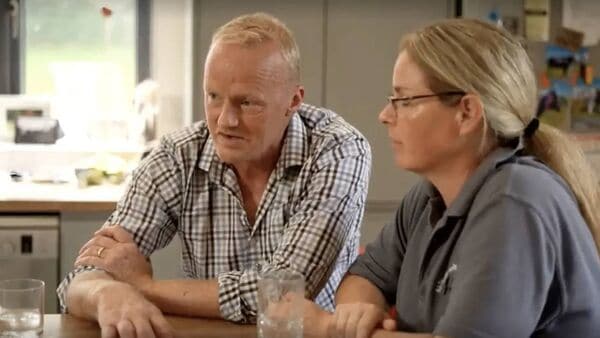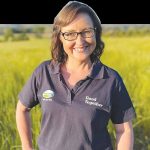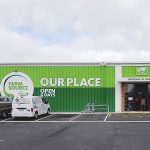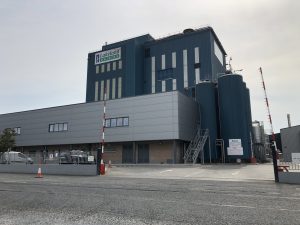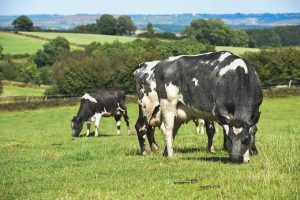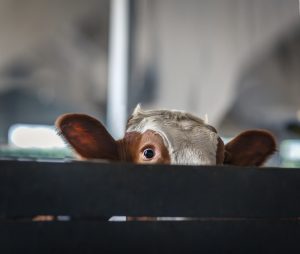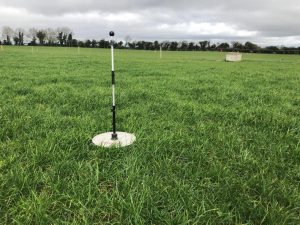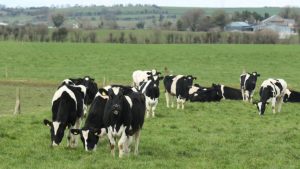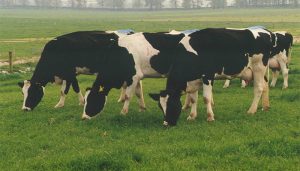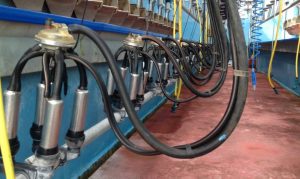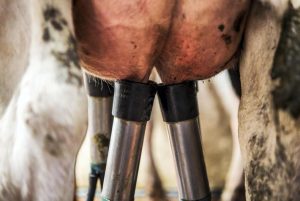
Farm Exam columnist Paula Hynes says that while the vast majority of Irish dairy farmers are not responsible, they must ensure that it never happens again.
Like the vast majority of Irish dairy farmers, animal welfare has always been the number one priority on farm. The reality is that we get up in the morning because we love cows.
We work long hours in the springtime seeing new life arrive on the farm; it is that in-depth passion for working with livestock that keeps us going through the tough times.
When RTÉ Investigates asked Peter and I if we were willing to be interviewed regarding an investigation into breaches in regulations of animal welfare, it wasn’t a decision we took lightly, but there comes a time in life when standing up for what is right far outweighs being popular.
Regardless of what was uncovered in the programme, it was always going to be crucial for the public to hear directly from farmers.
Those who know us know we are well used to dealing with the media, however, being interviewed by the RTÉ Investigates team is a whole different level.
In many ways, it was like being cross-examined by a top Barrister; by very professional respected investigators.
As we viewed the footage of what they had uncovered and how animals were being abused, we were horrified. However, in a long interview like that there is no time to process what had happened.
Our belief was there absolutely needed to be a zero-tolerance policy on the abuse of animals.
I have certainly felt in the lead to the airing on TV of the investigation, there was a slight air from a small minority that perhaps we shouldn’t have been interviewed; questioning if we would be ready for the fallout publicly on the Tuesday morning.
But I can tell you that if we had to do the interview again tomorrow morning, we would still say the same thing again.
It will always be an interview we could never be proud of; how could we have a sense of pride whilst, on the other hand, viewing a small minority abuse animals in such a shocking manner?
The reality is we, as a united dairy industry, must deal with the dark days ahead, we cannot change what has happened, the vast majority of us are not responsible for what has happened, but we must take ownership of the situation and ensure that it never happens again.
It is welcome to hear that the Department of Agriculture has launched an investigation, and it is vital that the investigation is thorough yet swift with a report published so that we know as farmers that our industry and our values are being protected by our policymakers.
There has been political outcry since Dairy’s Dirty Secret was aired, but opposition, whilst possibly looking to score political brownie points, in reality are offering no valid solution.
One party focused on valueless dairy bulls yet in the footage we viewed, it was clearly evident that there were also Angus Hereford and Belgian Blue calves also being exported, and a proportion of those calves are also female.
Sexed semen was also mentioned by the opposition as a solution. As a dairy farmer, I certainly don’t need an opposition party telling me to use sexed semen; we already have two sexing laboratories based in Ireland, and the dairy industry is already embracing the use of sexed semen as part of the solution.
But to suggest we should replace the male calf with a female calf would merely lead to an overproduction of dairy females which would also be a negative for the dairy industry.
I have no doubt that the marts will deal with the issues that were raised and will eliminate any abuse of animals on their premises; they too need support from their representatives and policymakers.
The age at which calves can be sold at marts will need to be addressed. Calf age and weight for export will need to see change; a 28-day-old calf with a minimum weight of 65kg would no doubt be a calf more capable of travelling.
The age of a calf that can be sold without TB testing will need to be looked at, currently, calves of 42 days of age and over must be TB tested, during Covid farmers were allowed to sell calves without a TB test up to 120 days and this seemed to work extremely well.
Farmers are no strangers to haggling, so perhaps we could split the difference with DAFM and calves could be sold up to 80 days of age without a requirement for TB testing.
Some opposition parties have called for live exports to be banned, in theory, this sounds like a wonderful solution, but the reality is a veal industry will never be set up in Ireland on any great scale; the green agenda Irish agriculture faces would not allow for those calves emissions to be counted in Ireland.
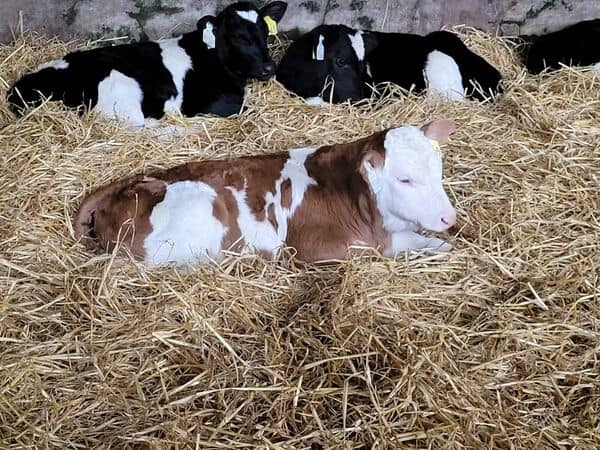
There are no slaughter lines available in Ireland to process that volume of veal calves and without an Irish veal industry, banning live exports would merely remove all competition within the meat industry.
When the French lairage in Pignet was temporarily closed in March, it merely increased the slaughter of young dairy calves – a practice that is being banned by dairy processors if farmers wish to continue supplying milk.
While a small minority of farmers were sending calves for slaughter, exporters were also using the licensed slaughter facility to process calves which they were unable to ship to Europe.
We need workable solutions from policymakers, we are a member of the European Union and we should have access to mainland Europe. Calves were exported to Europe before EU quotas were abolished, policymakers must ensure standards are raised a lot higher.
Why do we not have a mandatory lairage in Rosslare, ensuring calves are rested and fed before they set sail from Ireland? Some have suggested we fly calves to Europe, but is it viable, if so, then why is not happening daily in the springtime?
We cannot police borders outside of our jurisdiction, but is it not a case that our MEPs insist the EU heavily enforce transport regulations across mainland Europe?
And if all these options are not attractive to our policymakers, should they stand above the green agenda and allow for more young calves be reared in Ireland without their emissions being counted so as to develop the highest welfare standard veal industry in Ireland and set a new precedent.
The EU accounts for 90% of global veal production, developing the industry in Ireland would create jobs, benefit our economy.
Ireland has always welcomed and incentivized multinationals to set up in Ireland, as Poland now grabs a slice of the European veal industry, surely one of the three main Dutch producers would be happy to be welcomed into Ireland.
Yes, we are predominantly seasonal calving system, but for us as dairy farmers, all we constantly hear is stop doing this, reduce this, this will be banned and the self-proclaimed farming experts telling us we have done most things wrong.
I feel a sense of shame in how a very small minority have done immense damage to an industry I love so much.
Teagasc, along with the dairy processors and AHI, have provided a vast amount of information and training on calf welfare since quotas were abolished; we as farmers, having embraced those opportunities to prioritize welfare standards, we have invested heavily on farms to ensure we do have the highest calf welfare standards which we are known for globally.
One would hope that in the following weeks and months, workable solutions will be delivered by policy.
